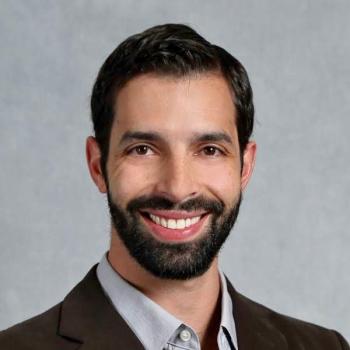Current Research and Scholarly Interests
The overarching goal of Dr. Keller’s Laboratory, the Laboratory for Personalized Neurotherapeutics (kellerlab.stanford.edu) is to improve brain stimulation treatment for neurological and psychiatric disease. His lab focuses on understanding the neural mechanisms of how brain stimulation technologies alter brain circuits in an effort to develop novel, personalized, and more effective brain stimulation treatments. Specifically, his lab seeks to identify and apply individualized stimulation protocols to elicit precise and predictable long-term plasticity in order to alleviate psychiatric suffering. His lab combines invasive and noninvasive human electrophysiology to answer these critical questions.
TMS is a non-invasive brain stimulation technique focused on normalizing dysfunctional brain networks and is FDA-approved for depression, OCD, migraines, and smoking cessation, with clinical trials underway for PTSD, addiction, and Alzheimers. Unfortunately, TMS is typically applied in a one-size-fits-all manner without reference to one’s biology, and as such we are in critical need for a personalized and more effective approach. Dr. Keller's seeks to improve Transcranial Magnetic Stimulation (TMS) and other brain stimulation techniques by better understanding the fundamental principles of human brain plasticity and building trans-diagnostic real-time monitoring platforms for personalized brain stimulation.
Dr. Keller's lab performs translational research at the intersection of neuroscience, electrophysiology, brain stimulation, neuroengineering, psychiatry, and precision therapeutics. Their work suggests that brain-based biomarkers may be used to predict non-responders to TMS treatment, monitor brain networks during intervention, and be used to propose novel targets and treatment paradigms.
This work has the expected outcome of producing novel stimulation treatments with enhanced specificity, plasticity, and efficacy. By increasing our understanding of the underlying mechanism and monitoring of brain changes during TMS, we will markedly increase the utility of these powerful techniques. Together, this work will help transform interventional psychiatry from an isolated (from a clinic perspective), one-size-fits-all treatment approach to one that focuses on targeting objective biomarkers and that is collaborative, large-scale, and automated, pushing the field into the age of personalized neuromodulation.
Dr. Keller emphasizes an environment conducive to team-based learning in order to train the next generation of clinically-informed circuit neuroscientists, question the status quo with rigorous scientific experiments, and make important contributions in understanding how brain stimulation alters neural circuits and behavior and translate these findings to develop targeted, personalized, and more effective treatments.


